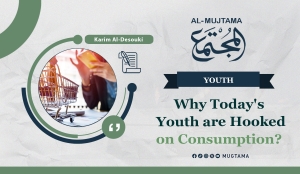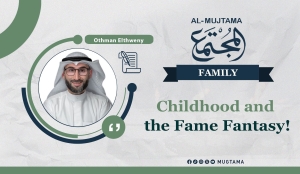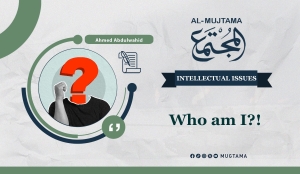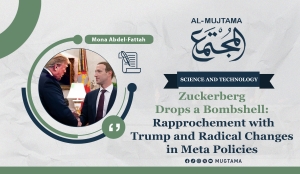Why Today's Youth are Hooked on Consumption?
February 11, 2025
In an era where technology is rapidly advancing, and globalization is intertwining various aspects of life, social media platforms have emerged as key players in shaping behaviors and consumer preferences globally, especially among the youth. Over time, these platforms have evolved from mere tools for communication and entertainment to powerful instruments of influence and marketing, significantly reinforcing consumer culture among individuals in their twenties and thirties.
Social media plays a crucial role in shaping the behaviors and consumer tendencies of today's youth. According to a study conducted by eMarketer (a company specializing in internet market research) in 2023, 85% of young people use social media on a daily basis.
Furthermore, a report by Statista, a company specializing in market and consumer data, indicated that the number of social media users worldwide exceeded 3.8 billion in 2021. This has made social media a primary driver of youth behavior and has facilitated easy access to user opinions and experiences with various products and services.
This influence affects purchasing decisions and contributes to the spread of consumer culture, as social media increasingly impacts youth desires and tendencies, encouraging their consumer inclinations through advertisements and content related to products and brands.
Social Pressure
In response to this, young people are greatly influenced by these desires, often resorting to purchasing and consuming even when they have no real need, driven by the social pressure exerted by social media, which places external appearances as a top priority.
In this context, recent statistics indicate that a significant portion of consumers—around 54%—are influenced by social media content in their purchasing decisions, according to a report issued by the Pew Research Center in 2021.
Additionally, a study conducted by Nielsen (a market research company) in 2020 revealed that 49% of consumers trust recommendations they receive through social media platforms. This aligns with a report from eMarketer, which noted that the number of social media users worldwide reached 4.33 billion in 2023, with 54% of them using these platforms to search for new products and services.
The same report highlighted that young people are the most affected age group by advertisements on social media, emphasizing the psychological and intellectual influence on this particular demographic globally, especially in the Arab world.
Advertising products and services through social media is one of the most impactful forms of advertising on youth globally. This is reflected in the average amount of time they spend on these platforms, which is 3.7 hours per day, according to Hootsuite (a company specializing in social media management).
Arab Youth
The situation is no less impactful than its global counterpart. A study conducted by the Gulf Research Institute in 2022 revealed that 60% of Arab youth consider social media a primary source of information about products and services.
Additionally, a study conducted by Umm Al-Qura University in Saudi Arabia in 2021 found that 70% of young people rely on social media for research and consultation before making purchases.
“Influencers” are one of the main factors contributing to this significant influence of social media on the youth. They possess the ability to change consumer preferences and guide them toward specific products.
Hootsuite reported that 73% of influencers are effective marketing tools for brands, and product manufacturers already utilize them for promotional purposes.
Targeted advertising for various youth segments plays a significant role in reinforcing consumer culture, as companies use big data to direct advertisements precisely to the appropriate audience.
In this regard, a study published by Forbes magazine in 2021 indicated that 67% of users feel that advertisements on social media influence their purchasing choices.
With the increasing reliance on online shopping, a survey conducted by The Economist in 2022 found that 85% of consumers prefer to shop online after seeing products on social media.
Of course, this influence does not come without its negative aspects. A study published by the Journal of Social Sciences in 2023 found that excessive exposure to advertisements and marketing content can lead to “increased social pressure” to possess the latest goods and services. This contributes to excessive consumer culture that often surpasses individuals' actual needs.
Consequently, social media has become a “facilitator” for addiction that is no less dangerous than drug addiction, whether in terms of psychological or financial impact, according to the aforementioned studies.
Thus, there is an urgent need to raise consumer awareness, particularly among the youth, and encourage them to adopt conscious and responsible consumption. Achieving this can only be accomplished by instilling “non-material” values in their hearts and minds and challenging the culture of appearances reinforced by social media.
-------------------------------------------------------------
Childhood and the Fame Fantasy!
February 09, 2025
In an era dominated by digital media and social networking sites, the concept of fame has become a dream that sneaks into the minds of children from a very young age. YouTube channels and influencers' accounts have become mesmerizing windows showcasing glamorous lifestyles that tempts children's imaginations, directing them toward a goal that may be beyond their comprehension at early stages of life: having their own channel and becoming famous. With this budding ambition come questions about the causes of this transformation and its impact on faith, psyche, knowledge, society, and behavior.
Fame is not condemned in Islam if it serves as a means for achieving good and benefiting society. It is well-known that the companion Abdullah ibn Mas'ud, may Allah be pleased with him, was famous for his knowledge and Quranic recitation. Yet his fame was a tool for inviting people to Allah, not an end in itself. However, Islam warns against the love of appearances and boastfulness that may lead to showing off, as highlighted by the Prophet's saying: “He who lets the people hear of his good deeds intentionally, to win their praise, Allah will let the people know his real intention (on the Day of Resurrection), and he who does good things in public to show off and win the praise of the people, Allah will disclose his real intention (and humiliate him).” This balance offered by Islam in dealing with fame makes it essential to reconsider the objectives children pursue when aspiring to such positions.
From a psychological perspective, the pursuit of fame among children may lead to the construction of a “false self,” where they begin adopting a virtual persona different from their true selves. This separation between real and virtual identities creates contradictions and psychological pressures. According to Erich Fromm's theory, the child becomes excessively dependent on others' opinions to value themselves, instead of building internal self-confidence. Moreover, as Albert Bandura's Social Learning Theory suggests, children learn through imitating the models they observe, making them susceptible to adopting values that may not align with their morals or society.
Fame also affects children's social relationships, encouraging an individualistic and competitive lifestyle where the goal becomes outperforming others rather than cooperating with them. This may weaken their social skills, such as communication and problem-solving. Additionally, children's preoccupation with fame exposes them to the risk of isolation, especially if they fail to achieve the anticipated success. Such isolation can leave deep psychological and social scars.
The role of media in promoting the concept of fame to children cannot be overlooked. Many YouTube channels and digital content rely on marketing consumerist lifestyles for purely commercial purposes. This reflects direct commercial exploitation of children, as advertisements are cleverly presented in a way that blurs the line between entertainment and marketing. This feeds consumerist values that reinforce an unsustainable lifestyle.
The spiritual aspect may be the most affected by this phenomenon. A child raised to believe that their value is measured by the number of likes and views may overlook genuine spiritual values that call for sincerity to Allah and working for what is good. Islam, in its lofty objectives, instills values of giving and sacrifice, urging the development of a personality that works sincerely without expecting material or social rewards.
How, then, can we address this phenomenon without harming childhood itself? The solution lies in fostering critical thinking in children and teaching them how to distinguish between reality and fiction in digital content. It is important for them to understand that what they see on the internet is not necessarily a reflection of reality. Moreover, providing alternative role models who combine ethical values with real achievements, such as scholars, inventors, and preachers, can motivate them to mimic those who achieve genuine accomplishments.
Additionally, families and schools must be involved in designing developmental activities that help children discover their true talents away from the pressure of fame. This can be achieved through programs that encourage volunteering, participation in sports and cultural activities, and the development of teamwork skills. Encouraging children to create positive and purposeful content can also help them express themselves in ways that reinforce values without compromising their childhood innocence.
Childhood is a formative stage that requires protection from the negative influences of digital media. Society as a whole must recognize that guiding children toward achieving noble goals enhances their spiritual, psychological, and social values, enabling them to face the challenges of the modern era. Through collective efforts, we can build a conscious generation that lives in its time without losing its essence.
-------------------------------------------------------------
Who am I?!
February 07, 2025
The question of identity is complex and can often haunt a person, amid the difficulty of answering it, in the midst of challenges imposed by tremendous technological advancement and the technical evolution in means of communication and interaction. This has made the world a small village, and consequently, humanity has become prey to everything new and strange.
But it is wise to simplify matters for young children and teenagers of both sexes, and to provide answers to big questions in a smooth and concise manner, so that our children do not fall victim to alienation, globalization, intellectual and cultural invasion, and civilizational estrangement, without a savior.
To begin with, the compass must be clearly and visibly established for our children, especially regarding their Islamic identity, and being a Muslim who professes the testimony of faith, believes in God, His angels, His messengers, and the Day of Judgment, and that the religion with God is Islam. They should understand that there are limits set by God, and commands and prohibitions that they must adhere to, as well as a Sharia within the framework of the Quran and Sunnah, which serves as their guide and path in this worldly life
Some may think that these are self-evident matters, but the waves of Westernization, atheism, and deviation that have hit new generations and dominated the media and communication require us to reaffirm those constants, revive those roots, and illuminate the path to bring those generations from darkness to light, guided and with clear evidence, without any doubt or suspicion, and where their beliefs are not shaken by hypocrites or atheists.
The second question of identity relates to the Arab being, in terms of language, tongue, history, and geography, and the connection to the Arab nation, with its past, present, and future, taking pride in that, in word and deed, being certain of the dignity of its nation when it clings to its language and religion. It established a civilization that led nations in previous centuries and achieved cultural accomplishments recognized by history.
Some of the new generations may feel shame and embarrassment from their affiliation with an Arab country that ranks low in indicators of knowledge, progress, and development. They might feel embarrassed by their Arabic language, picking up several words in English or French, and continuously chatter in those languages, believing that this reflects sophistication and advancement. This results in a neglect of their own culture and Arabic language, leading to a sense of inferiority in front of speakers of other languages, and retreating before cultures that do not compare to what our culture embodies in terms of values, principles, heritage, and history.
The third question of identity is unconventional and is the result of new changes that have imposed themselves on the world of adolescents and youth, who may be accused of rigidity and backwardness by their peers, especially when it comes to traditional and classical lifestyles versus "modern" ones. This question carries within it social and material pressures related to clothing style, hairstyle, the type of phone one owns, shopping habits, and even food and drink choices. In a consumption-driven world that follows trends and global brands in a blatant materialistic manner, these issues are particularly pressing.
There may be other questions related to identity that touch on different aspects of the lives of teenagers and young adults, such as the European team they support in football, the legendary player whose jersey they love to wear, the American star whose movies they adore, the pop band whose music and songs they are addicted to, the wrestler whose moves they imitate, the famous YouTuber whose channel they follow on YouTube, and the TikToker whose views and visits they are captivated by, among others. These questions have emerged from new perspectives and dimensions related to youth identity, which is indeed lost in the world of fashion.
A new identity is manifesting before our eyes, which I might assert has transcended the triad of religion, language, and history, imposing other components that touch upon belief, custom, and habit, alongside ethics and values. This includes aspects of education, marriage, friendships, and other forms of modern social life in the twenty-first century, which have reshaped and crafted new and strange identities, marked by a Western touch and a distorted flavor.
With the rapid development of platforms and means, the increasing diversity of ideas, the intense competition between ideologies, the cross-fertilization of cultures, and the multiplicity of purposes and goals, it has become a pressing obligation to study these identities, explore their characteristics and essence, delve into their roots and principles, and investigate what they contribute and what they lack. It is also important to unveil the concepts they promote, the visions they present, and to determine whether they are a constructive component and a qualitative addition or a factor of destruction and dependency in a new guise.
We may need to establish clubs for knowledge and cultural exchange, or centers for identity formation, to help new generations find themselves, explore their identities, engage in dialogue with others, and connect with their roots. This is not merely about an eternal relationship with parents and grandparents, but about launching from those roots into broader horizons that adapt to the changes of reality in this digital world. This should be done within the framework of an open and disciplined engagement with what others have offered and their achievements on all fronts, without being awed by them, belittling them, or adopting a sense of superiority over them, but rather merging all that is useful into a cohesive and robust identity that fosters creativity.
Digital Threats to Marital Harmony
January 24, 2025
In the era of digital technology, it is impossible to ignore the profound impact of modern innovations on all aspects of our lives, particularly the social ones. One of the most significant changes witnessed in recent years has been the effect of “digitalization” on marital relationships.
The virtual world, made possible by communication technology and social networks, has provided us with extraordinary communication tools. However, it has also introduced new challenges threatening to undermine marital bonds, the strongest human connection described by Allah in the Quran as a “solemn covenant.”
These tools, despite their apparent benefits, can act as a double-edged sword, requiring a deep understanding and effective strategies to preserve family cohesion in the Arab and Islamic world.
The globalization of digitalization presents a unique challenge in this regard, as the influence of the virtual world transcends national, ethnic, and cultural boundaries. Consequently, “online infidelity” has become a global phenomenon.
Social Media
Social media platforms are among the most prominent tools of this globalization, negatively affecting marital relationships. According to a study conducted by Stanford University researcher Katherine Humphreys in 2022, excessive use of social media increases levels of suspicion and distrust between spouses.
The study noted that 40% of couples who use social media excessively face trust issues, with feelings of jealousy arising from their partners' interactions with others. Another study conducted by the Pew Research Center in 2021 revealed that 34% of couples believe social media increases the likelihood of infidelity and negatively impacts their daily communication.
The study also indicated that excessive use of these platforms contributes to marital tensions, ultimately leading to higher divorce rates.
With the growing reliance on text messages and instant messaging applications like WhatsApp and Telegram, these apps have become arenas for communication problems between spouses.
According to another study by Dr. Emily Roberts of Harvard University in 2021, couples who excessively depend on text messaging for daily communication face difficulties in face-to-face communication. The study pointed out that text messages often lack the emotional expression necessary for effective communication, leading to misunderstandings and misinterpretations of intent.
Online Gaming
Online gaming and virtual worlds like “Second Life” have become an integral part of many couples' lives. However, a 2020 study by Dr. James Patterson from the University of California indicated that excessive engagement in these virtual worlds could lead to “marital isolation.”
The same study found that 35% of gamers who spend more than four hours daily playing online games experience deterioration in their marital relationships due to a lack of time and direct communication with their spouses.
The first step to addressing the impact of the virtual world on marital relationships lies in enhancing trust and communication between spouses in the real world. This can be achieved by spending quality time together away from digital devices.
In this regard, a 2023 study by Dr. John Williams at Yale University recommended that couples set aside daily time for face-to-face conversations. This practice reduces stress and doubts while fostering emotional bonding.
Another study conducted by Dr. Lisa Anderson at Oxford University in 2020 suggested that couples engage in shared recreational activities such as sports or artistic hobbies. These activities strengthen emotional connections and mitigate the isolation imposed by technology on their lives.
Digital Boundaries
Establishing clear boundaries for digital use is an effective strategy to address the encroachment of the virtual world on real-world relationships. According to Dr. Sarah Miller in a 2021 study at the University of Michigan, couples who agree on clear boundaries for the use of social media and electronic devices achieve a better balance between their digital and personal lives.
The same study recommended setting specific times during the day free from devices, such as meal times and bedtime.
Similarly, a 2022 study by a research team at the University of British Columbia found that couples who establish clear rules regarding technology use enjoy more satisfying and stable relationships. The study also noted that allocating time for digital devices and family activities can help reduce tensions caused by excessive technology use.
In some cases, seeking marital counseling may be necessary. A 2022 study by Dr. Mark Taylor at Columbia University found that couples who seek marriage counseling can develop effective strategies to cope with the pressures of the virtual world.
Taylor added that counseling sessions help couples better understand each other's needs and develop healthy communication skills.
While the virtual world offers immense benefits, it also poses significant challenges to marital relationships. Understanding these challenges and developing effective strategies to address them is key to maintaining family cohesion and strengthening marital bonds in this digital age.
-------------------------------------------------------------
Zuckerberg Drops a Bombshell: Rapprochement with Trump and Radical Changes in Meta Policies
January 22, 2025As the inauguration of U.S. President-elect Donald Trump approaches on January 20, Meta founder Mark Zuckerberg dropped a bombshell with shocking statements about masculine energy and its impact on the success of institutions.
In an interview with renowned host Joe Rogan, Zuckerberg spoke about the importance of masculine energy, considering it a positive element in society. He said, "Masculine energy is good, and society has plenty of it."
Zuckerberg explained that while balance between masculine and feminine energy is important, he believes companies need more masculine energy. He attributed this to his view that aggression is one of the key factors for achieving success and excellence.
From Tension to Rapprochement: Zuckerberg and Trump
During Trump’s first term, his relationship with Meta was highly strained, peaking when the company banned Trump’s account following the January 6 Capitol riots.
However, as Trump’s return to power nears, reports indicate that Zuckerberg, the CEO of Meta, is seeking to rebuild ties with the President-elect. These moves come as White House support for Meta’s artificial intelligence projects gains increasing importance.
According to two sources for CNN, Zuckerberg met with Trump at Mar-a-Lago last Friday after Meta made changes to its fact-checking policies. Reports suggest that Zuckerberg has recently taken steps reflecting his desire to get closer to the incoming administration.
Among these steps, Meta donated $1 million to the President-elect’s inauguration fund on January 20. This donation, confirmed by the company, marks a significant shift from Zuckerberg’s previous policies, especially after a campaign in which Trump threatened to penalize tech companies if they attempted to influence against him, according to The Wall Street Journal.
Radical Changes at Meta
In this context, Zuckerberg announced radical changes in Meta’s policies, which have sparked widespread controversy. The most notable of these changes include allowing users to criticize migrants and transgender people, which was previously prohibited. Meta also abandoned diversity and inclusion policies that favored hiring women, Black people, and LGBTQ individuals, replacing them with merit-based standards regardless of background or identity.
Zuckerberg also announced further steps regarding content management, such as eliminating the role of fact-checkers and significantly reducing censorship on posts. He added that more political posts would be recommended to promote free speech and encourage open debate.
Zuckerberg Following in Musk’s Footsteps
In another controversial move, Zuckerberg announced replacing fact-checkers with a "Community Notes" system that allows users to add warnings or context to contentious posts. This system closely resembles the approach used by Elon Musk’s X platform, which relies on users instead of professional fact-checkers.
Criticism of Biden
The biggest surprise came in his attack on current U.S. President Joe Biden's administration. Zuckerberg revealed that Meta faced pressure from the Biden administration to remove posts related to the COVID-19 pandemic, raising questions about the influence of governments on social media platforms. He said, "The Biden administration threatened us and forced us to delete pandemic-related posts."
While Meta defends these changes as a step toward enhancing freedom of expression, some experts warn that these policies may contribute to the spread of misinformation, especially with weaker content moderation.
Social Media Reactions: Zuckerberg Sides with the Right
Writer Iyad Al-Hamoud tweeted via his X account: "What happened shows the dominance of power and money over the laws adopted by American companies, only to abandon them in hours for their interests. This exposes widespread hypocrisy for the sake of success, with no regard for principles."
A user named Hashim noted that Mark Zuckerberg, Meta’s CEO, is adopting Elon Musk’s approach by loosening content restrictions, similar to what the X platform has done.
He added, "Big tech companies are beginning to shift away from leftist ideology and move closer to Trump and the far-right. This development reflects the early results of Trump’s war against the deep state within the United States."
Hashim also explained that the leftist agenda and the deep state would not easily surrender to Trump, predicting that his first battles would be directed at the American interior and the deep state before turning to confront China.
He concluded, "Zuckerberg’s tone towards Europeans and their laws is very clear. We are witnessing a new global and digital order taking shape before our eyes."
-------------------------------------------------------------







